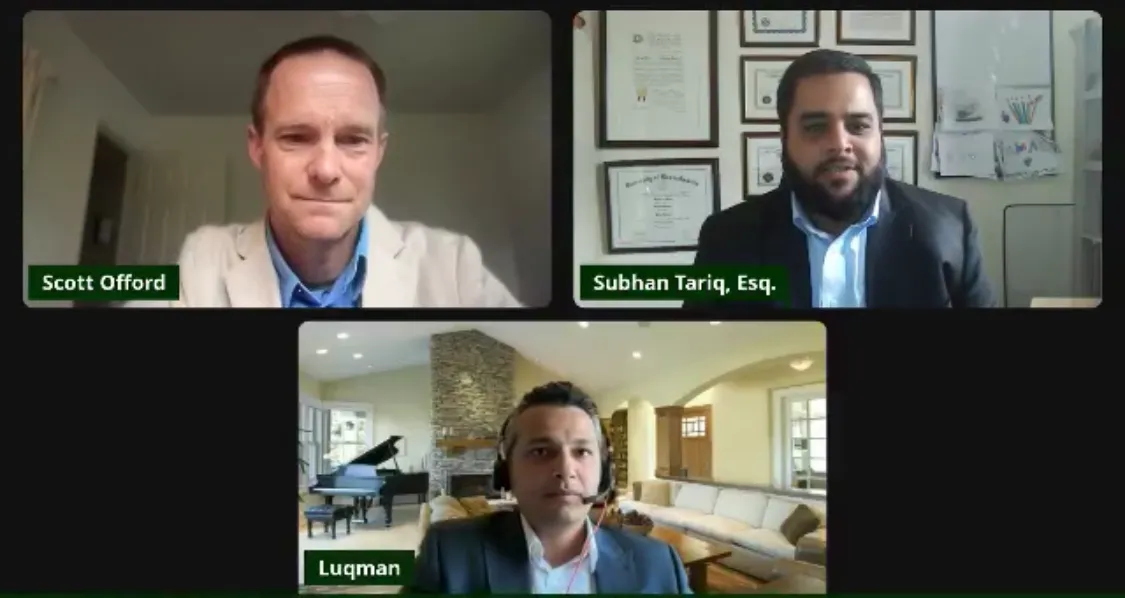Can Bitcoin solve Pakistan’s $2.5B electricity problem?
Supporters of mining say the right incentives could activate idle assets and attract new investment

Pakistan wastes enough electricity to power a small country – and pays billions for the privilege. Members of Pakistan’s Bitcoin-only community believe the country’s surplus power could be turned into economic value – using a strategy already working in places like Bhutan.
In a webinar co-hosted by Bitcoin Pakistan and Bitcoin Mining World, advocate Luqman Khan and attorney Subhan Tariq laid out a bold case for change. Representing what they describe as the country’s “only Bitcoin – not crypto, just Bitcoin – community,” they argued that Pakistan needs a new approach to its energy surplus.
They were joined by U.S.-based mining consultant Scott Offord, who contributed technical insight on how Bitcoin mining could help transform Pakistan’s unused electricity into a national resource.
The country's installed power generation capacity is around 44,000 megawatts. But even during peak summer months, the country uses only about 30,000. The result: thousands of megawatts sitting idle while the government foots the bill.
“We are paying $2.5 billion for electricity which we are not using,” Khan said. These capacity payments are a major burden for a country already grappling with inflation, currency devaluation, and rising debt. Yet, he argued, the solution may lie not in cutting generation – but in using it more creatively.
Why Bitcoin mining suits Pakistan’s energy grid
Bitcoin mining, often criticized for its energy consumption, could be a practical fit in this context. Mining operations require large amounts of electricity, but they don’t need that power to be transmitted long distances.
In practice, that means mining rigs could be set up directly at or near power plants using idle capacity. By doing so, Pakistan could begin converting surplus electricity into a digital asset that’s liquid, borderless, and potentially valuable.
For countries without large foreign exchange reserves, acquiring Bitcoin through mining – rather than direct purchase – may be a more accessible path.
The process involves computers solving complex mathematical problems to validate transactions on the network. As a reward, miners receive Bitcoin. It’s energy-intensive – but in this case, it would put otherwise wasted power to productive use.
Global models and precedent
The idea isn’t without precedent. Tariq pointed to Bhutan, which has reportedly mined more than $2 billion worth of Bitcoin using surplus hydroelectric power.
“They didn’t buy a single Bitcoin,” Khan said. “They just mined all the Bitcoins, used electricity. They have [them], keep it. That’s what we need to do.”
Khan also cited El Salvador, which created a Bitcoin treasury and launched BTC-backed bonds tied to its geothermal energy reserves.
And more recently, he pointed to the United States: “President Trump has recently signed an executive order to establish the strategic Bitcoin reserve for the USA, which is a good signal for the Western world, and countries who are allies of the Western world, like Pakistan, to move towards this digital asset and start acquiring this as a strategic reserve.”
Legal uncertainty blocks progress

Mining consultant Scott Offord, attorney Subhan Tariq, and Bitcoin Pakistan's Luqman Khan outline how Bitcoin mining could repurpose Pakistan’s unused electricity during a recent webinar
Despite the promise, the major hurdle is clear: regulation. “We require legislation from the government – clarity on whether Bitcoin is an asset class, whether mining is legal or illegal in the country,” Khan said.
Pakistan’s government has historically taken a cautious stance on crypto, citing volatility and risks of illicit finance. But without legal clarity, mining operations can’t scale – and investors won’t commit capital.
Offord argued that fixing this is key. “If a country like Pakistan can get the regulations in order and make it feel safe for investors, that will be very much needed,” he said.
The team emphasized that this isn’t about speculation or hype – it’s about long-term economic strategy. “When you grow your economy, when you increase exports, when you bring in foreign revenue in the country, it benefits everyone,” Khan said.
They believe mining could bring several macroeconomic benefits. First, it could help stabilize Pakistan’s currency by bringing in external revenue. Second, it could reduce reliance on IMF loans or foreign remittances. And third, it could create local jobs in data center construction, technical maintenance, and energy infrastructure.
Tariq added that for Muslim-majority Pakistan, Bitcoin also has religious legitimacy. “Bitcoin is the most Halal form of currency ever,” he said. “It is gold, but digital and transferable and transportable anywhere in the world, instantaneously at virtually zero cost.”
For a country facing capital controls, energy poverty, and youth unemployment, the potential appeal is broad. “We all want the country to thrive and grow and prosper,” Tariq said. “Everything in Pakistan is tough until it reaches a point where, magically, it becomes easy.”
Pilot projects could prove the case
A pilot project could help bridge the gap. According to Khan , with the right approvals, a small-scale initiative could be up and running “in a few months,” offering data on returns, logistics, and grid integration.
Offord was even more direct: “Give me an internet connection and some free power. I’ll bring a Bitcoin miner to you... and in less than a day, you guys will have some Bitcoin.”
The path forward may not be easy. But Bitcoin Pakistan sees repurposing wasted energy as a practical economic strategy.



